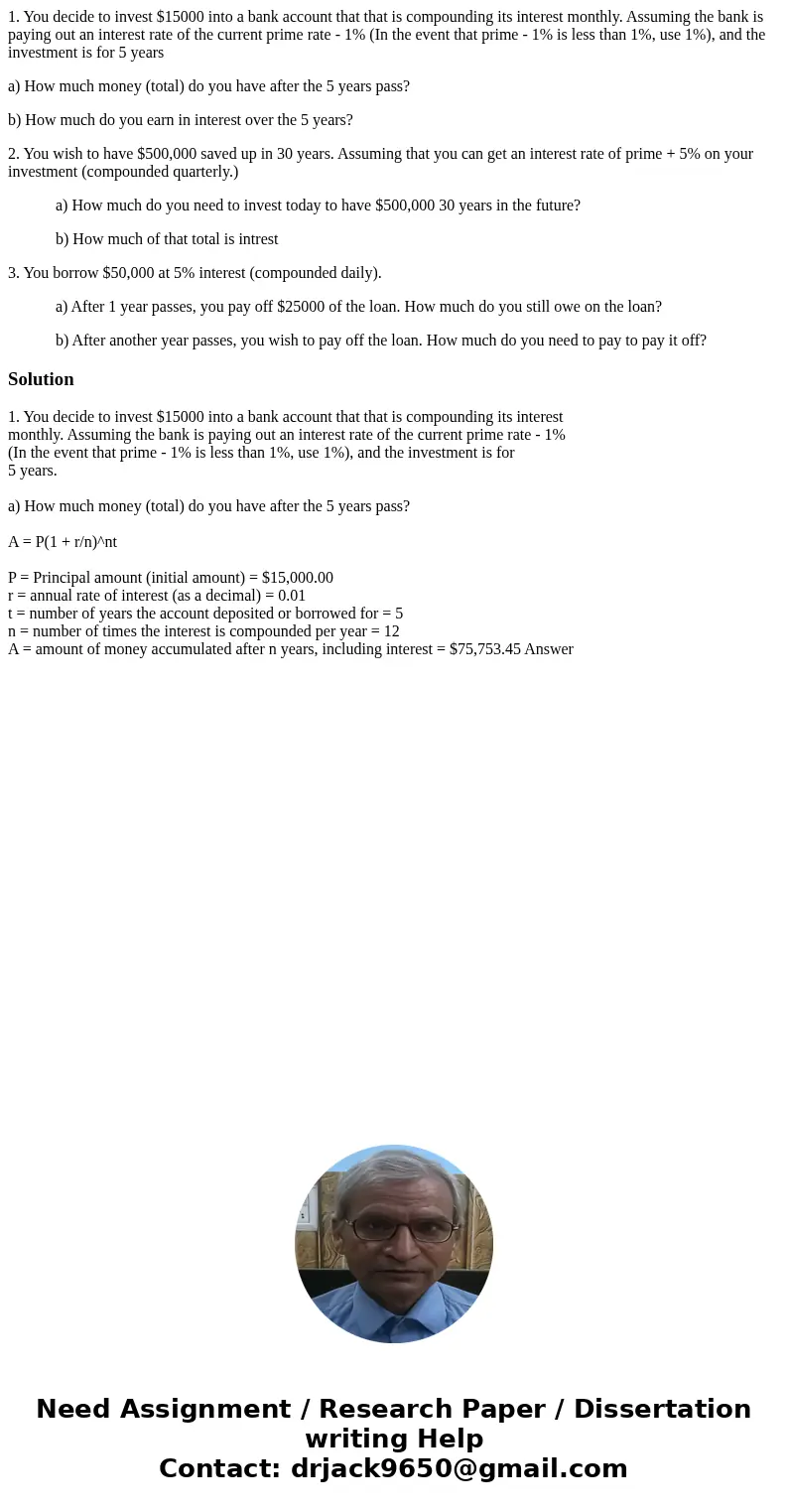1 You decide to invest 15000 into a bank account that that i
1. You decide to invest $15000 into a bank account that that is compounding its interest monthly. Assuming the bank is paying out an interest rate of the current prime rate - 1% (In the event that prime - 1% is less than 1%, use 1%), and the investment is for 5 years
a) How much money (total) do you have after the 5 years pass?
b) How much do you earn in interest over the 5 years?
2. You wish to have $500,000 saved up in 30 years. Assuming that you can get an interest rate of prime + 5% on your investment (compounded quarterly.)
a) How much do you need to invest today to have $500,000 30 years in the future?
b) How much of that total is intrest
3. You borrow $50,000 at 5% interest (compounded daily).
a) After 1 year passes, you pay off $25000 of the loan. How much do you still owe on the loan?
b) After another year passes, you wish to pay off the loan. How much do you need to pay to pay it off?
Solution
1. You decide to invest $15000 into a bank account that that is compounding its interest
monthly. Assuming the bank is paying out an interest rate of the current prime rate - 1%
(In the event that prime - 1% is less than 1%, use 1%), and the investment is for
5 years.
a) How much money (total) do you have after the 5 years pass?
A = P(1 + r/n)^nt
P = Principal amount (initial amount) = $15,000.00
r = annual rate of interest (as a decimal) = 0.01
t = number of years the account deposited or borrowed for = 5
n = number of times the interest is compounded per year = 12
A = amount of money accumulated after n years, including interest = $75,753.45 Answer

 Homework Sourse
Homework Sourse